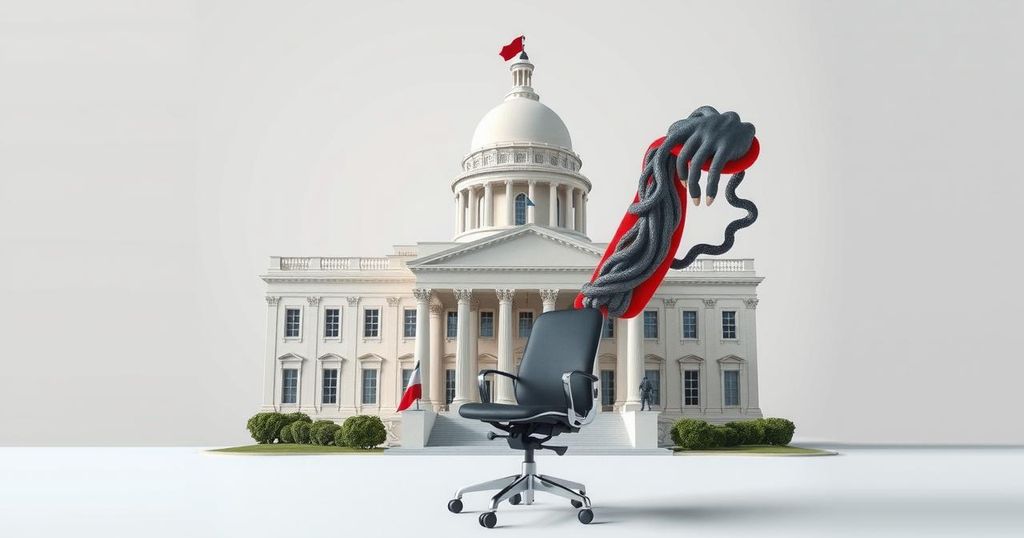President Salva Kiir has dismissed two vice-presidents and the spy chief of South Sudan. The changes were announced without specific reasons, amidst ongoing political tensions since the 2018 peace agreement. Benjamin Bol Mel has replaced one vice-president, while the political scene continues to evolve with delays in national elections.
President Salva Kiir of South Sudan has enacted a significant shake-up in his administration by dismissing two vice-presidents, the chief of the national intelligence agency, and several senior officials. These decisions were communicated through a series of decrees broadcast by state media, although the specific reasons for the dismissals were not disclosed. The recent changes come amid ongoing tensions within the government following the 2018 peace agreement aimed at resolving the nation’s persistent civil conflict.
Among those dismissed was James Wani Igga, a seasoned politician who held his vice-presidential position since 2013 and was the deputy chair of the ruling Sudan People’s Liberation Movement (SPLM). The second vice-president dismissed, Hussein Abdelbagi Akol, belonged to the Opposition Alliance (SSOA) and has since been appointed as the Minister for Agriculture, succeeding Josephine Joseph Lagu, who has been elevated to vice-president.
Benjamin Bol Mel, previously under U.S. sanctions due to corruption allegations, has been appointed to replace Igga. His prior role was as a special presidential envoy; there has been speculation about his potential as a successor to President Kiir. Additionally, the posts of health minister and governor of Western Equatoria remain unfilled, as their previous holders were associated with Riek Machar’s party.
The 2018 peace agreement grants President Kiir the authority to appoint and remove officials at both national and state levels. However, he can only make appointments from other political parties with the agreement of their respective leaderships. The implications of these recent dismissals, particularly concerning Machar’s party, remain unclear as they have yet to issue a public response.
Elections in South Sudan have not taken place since independence in 2011. While efforts for nation-wide voting were made, conflicts have repeatedly delayed the electoral process. Initial plans targeted a 2015 election date, which was postponed first to 2022 and now to December 2026, underscoring the ongoing political instability within South Sudan.
In summary, the recent dismissals implemented by President Salva Kiir signal substantial shifts in South Sudan’s political landscape. Notably, the removal of key figures, including two vice-presidents and the spy chief, occurs against the backdrop of ongoing tensions within the government stemming from the 2018 peace agreement. Furthermore, with delays in elections and potential succession speculation involving Benjamin Bol Mel, the future political dynamics of South Sudan remain uncertain.
Original Source: www.bbc.co.uk




